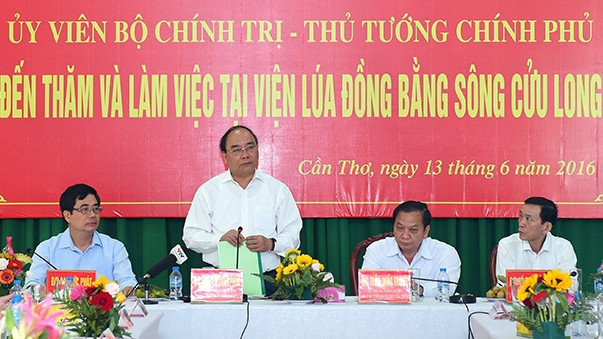The PM held a working session with the CLRRI in Can Tho on June 13 during his tour to the Mekong Delta provinces.
Speaking at the event, the government leader praised efforts by the CLRRI during its 40 year development with important contributions to turn Vietnam into one of the largest rice exporters in the world.
The institute has researched and put into production 165 rice varieties, including some with outstanding features. Among ten rice varieties commonly planted in the delta, eight have been bred by the institute, accounting for nearly 80% of the planting area.
The creation of new rice varieties has contributed to bring the Mekong Delta rice production from 4.2 million tonnes in 1976 to 25 million tonnes in 2015, up more than six times, helping the country's rice yield lead ASEAN (at the average yield of 5.8 tonnes/ha, 1.5 times compared to Thailand's rice).
It has also built 11 cultivation processes which are widely recognised at the national level and bringing high economic efficiency.
PM Phuc noted that the Mekong Delta is currently affected by a record severe drought and salinisation, requiring a high need for salt and pest resistant rice varieties to adapt to the situation.
He also required developing plans to improve Vietnam’s rice quality for both consuming and exporting and to be competitive in the economic integration process, while urging the institute to accelerate scientific research and technology transfer in association with market demand.
















